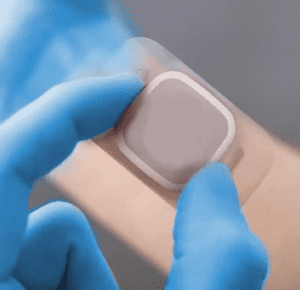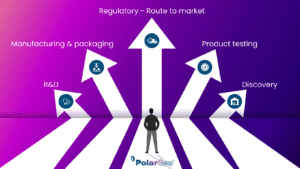Over the past decade there has been a shift in the way we manage our wellness, and a growing trend is emerging, never before has the consumer been so interested in our health. From the rise of wearable technology that monitors heart rate, body temperature, calories and more, to eating for immunity, keeping active, and sleep tracking, the consumer is driven by accessible information, and with a growing emphasis on self-care and wellness, consumer healthcare plays a crucial role in promoting health-conscious behaviours and supporting individuals in achieving their health goals.
Healthcare is consistently ranked within the top 20 Google searches, and in this digital era we now live, the consumer craves knowledge, and knowledge is power. We care about our bodies, so its no wonder that the consumer healthcare industry has seen exponential growth over the 21st century, even in the face of challenges such as inflation rates, responsible for rapidly rising prices and the cost of living crisis that see’s our consumers with less disposable income, the industry still thrives and the consumer is still prioritising their health, with the healthcare consumer market seeing a total market growth of 11% in 2022 and that trend has continued throughout 2023.
What's considered consumer healthcare?
So when we refer to the consumer healthcare, what exactly do we mean? Consumer healthcare is the products, services, and information that individuals use to manage and enhance their health and wellbeing on a day-to-day basis. This category encompasses a wide range of over-the-counter (OTC) medications, wound dressings, ointments, nutritional supplements, personal care products, and health-related devices that consumers can purchase without a prescription. The focus of consumer healthcare is on empowering individuals to take an active role in maintaining their health, preventing illness, and managing minor health conditions independently. This sector often involves the accessibility of healthcare products in retail settings, online platforms, and pharmacies, enabling consumers to make informed choices about their health and lifestyle.

Looking forward
As we look ahead, how can the changes in our healthcare system post pandemic impact the consumer healthcare market? It’s no surprise that consumers are becoming more proactive in managing their health, focusing on preventive measures and lifestyle choices, with an increased interest in dietary products and supplements that support a healthy immune system. There is a growing focus on the environment, trust, transparency and evidence, and the consumer repeatedly shows a preference for products with clean and natural ingredients, transparency in labelling and a focus on sustainable and environmentally friendly practices are becoming essential for our consumer.
Not only has the consumer evolved but the way our GP (General Practitioner) system functions has also made some changes and in the UK in particular there is a huge focus on driving the consumer to consult with our pharmacies, and the role of our pharmacists in the healthcare system is utilized now more than ever, with reported growth in visits to our pharmacies of up 83% in 2022. As more people are using pharmacies, individuals can easily access over-the-counter medications, health supplements, and other wellness products, which is contributing to the growth of the industry. The consumer healthcare market is currently valued at circa $500 billion, and is predicted to increase at a CAGR of over 22% set to reach over $1000 billion by 2027. This growth is predicted off the back of ‘The Self-Care Movement’ that we have seen evolving since 2021, backed by ‘WHO Consolidated Guideline on Self-Care Interventions for Health’ they provide evidence based recommendations on self-care interventions.
Read More from PolarSeal

4 Key Factors That Affect the Cost of Die Cutting
Cost is top of mind when clients are looking to flexible material converters to manufacture a die cut device or component to take to market.

7 Types of Diagnostic Products & Wearable Diagnostic Devices Important in the Personal Healthcare Industry
The medical industry is constantly evolving, and new diagnostic products and wearable diagnostic devices are key to keeping healthcare teams ahead of the curve and

HOW TO PRECISELY MANUFACTURE CONSUMER HEALTHCARE IN HIGH VOLUMES
Introduction The Consumer Healthcare market has gone from innovative strength to strength in recent years, but never has the need for precise high-volume manufacturing been








